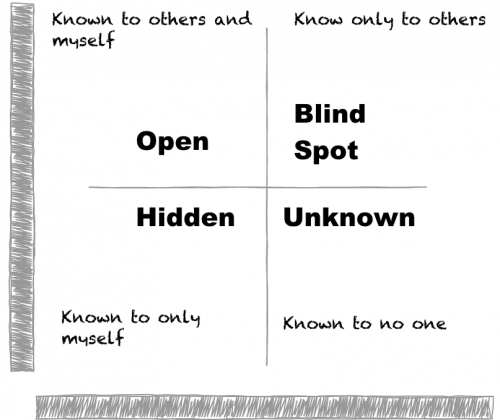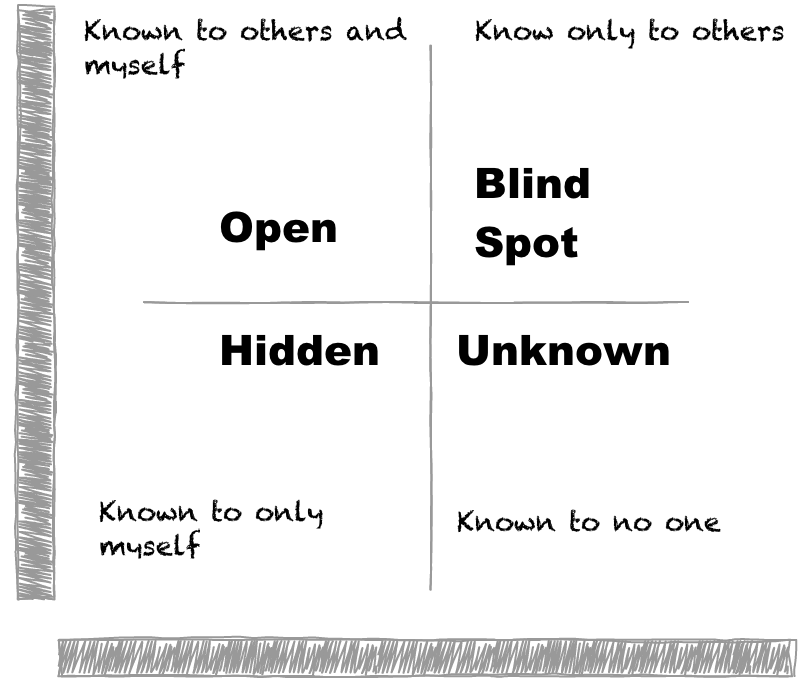One of our biggest challenges in life is self-assessment. We think we know ourselves pretty well, however the science says different.
As a leader, personal self-assessment is critical to success. We have to be able accurately assess our abilities.
We all have a blind spots. Our blind spots are those things that others know about us, that we are unaware of. Our blind spots are those things others see in us, that we can’t see in ourselves.
Johari‘s window sums it up nicely like this:

The Open – what others know about us and what we openly share with others
The Hidden – what we know about ourselves that others don’t know. (What we keep hidden from site)
The Unknown – what we don’t know about ourselves and what others don’t know
The Blind Spot – what others know about us, that we don’t know about ourselves
The blind spot is where we get tripped up. It’s the reason we fail and seem perplexed because we thought we did everything right. It’s the date that we thought went awesome yet they don’t want to go out with us again. It’s the co-worker feeling belittled after you thought you had a super productive meeting. The blind spot is the part of us we just don’t see that the rest of the world does that screws everything up.
Do you know your blind spot(s)? Ask around, everyone else does.


